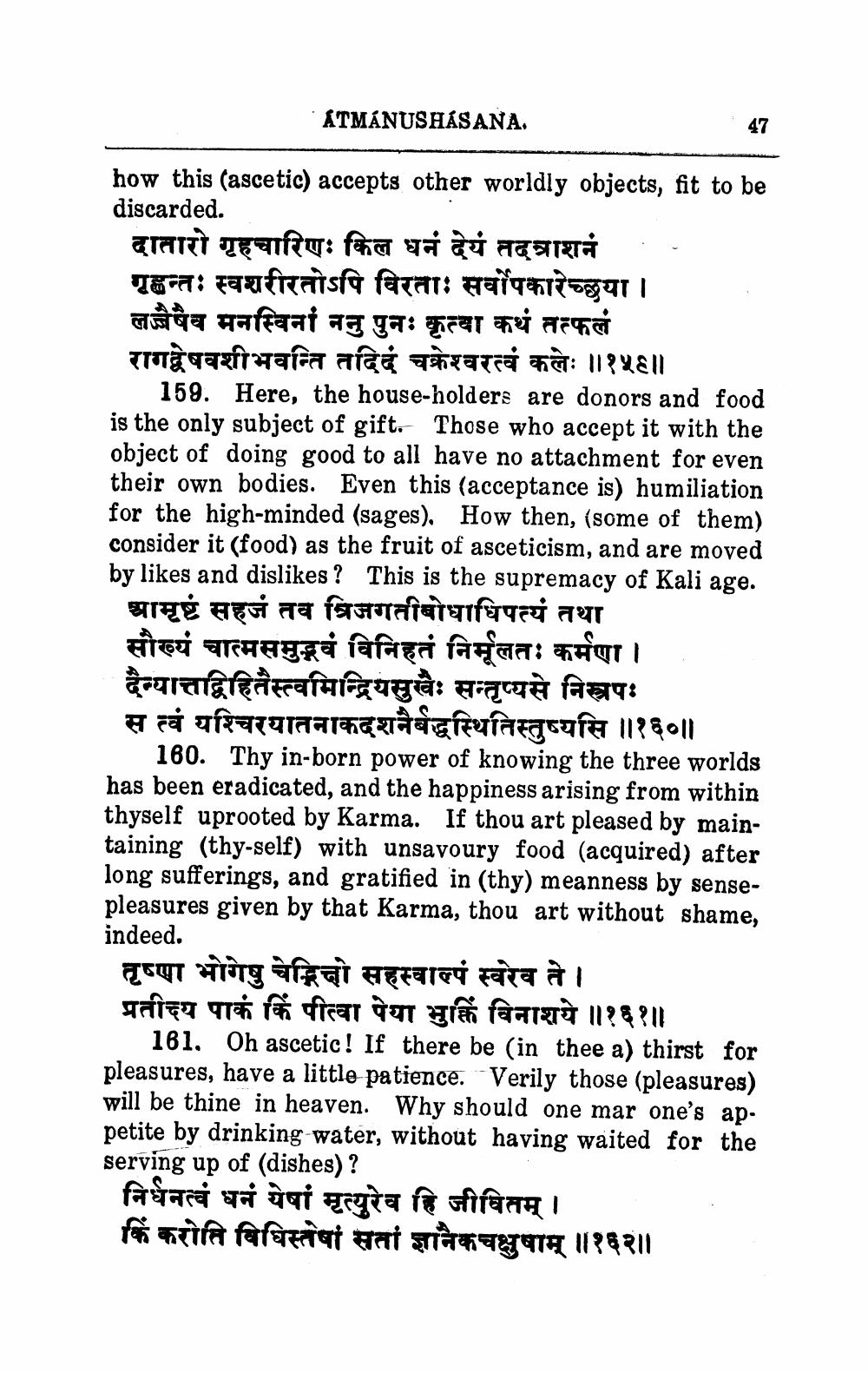________________
ATMÁNUSHASANA.
47
how this (ascetic) accepts other worldly objects, fit to be discarded.
दातारो गृहचारिणः किल धनं देयं तदनाशनं गृह्णन्तः स्वशरीरतोऽपि विरताः सर्वोपकारेच्छया । लज्जैषैव मनस्विनां ननु पुनः कृत्वा कथं तत्फलं रागद्वेषवशी भवन्ति तदिदं चक्रेश्वरत्वं कलेः ॥ १५६ ॥
159. Here, the house-holders are donors and food is the only subject of gift. Those who accept it with the object of doing good to all have no attachment for even their own bodies. Even this (acceptance is) humiliation for the high-minded (sages), How then, (some of them ) consider it (food) as the fruit of asceticism, and are moved by likes and dislikes? This is the supremacy of Kali age. आमृष्टं सहजं तव त्रिजगतीबोधाधिपत्यं तथा सौख्यं चात्मसमुद्भवं विनिहतं निर्मूलतः कर्मणा । दैन्यात्तद्विहितैस्त्वमिन्द्रियसुखैः सन्तृप्यसे नित्रपः स त्वं यश्चिरयातनाकदशनैर्बद्धस्थितिस्तुष्यसि || १६० ||
160. Thy in-born power of knowing the three worlds has been eradicated, and the happiness arising from within thyself uprooted by Karma. If thou art pleased by maintaining (thy-self) with unsavoury food (acquired) after long sufferings, and gratified in (thy) meanness by sensepleasures given by that Karma, thou art without shame, indeed.
तृष्णा भोगेषु चेद्भिदो सहस्वाल्पं स्वरेव ते । प्रतीक्ष्य पाकं किं पीत्वा पेया भुक्तिं विनाशये ॥ १६१ ॥
161. Oh ascetic! If there be (in thee a) thirst for pleasures, have a little patience. Verily those (pleasures) will be thine in heaven. Why should one mar one's ap petite by drinking water, without having waited for the serving up of (dishes ) ?
निर्धनत्वं धनं येषां मृत्युरेव हि जीवितम् । किं करोति विधिस्तेषां सतां ज्ञानैकचक्षुषाम् ।। १३२ ।।




